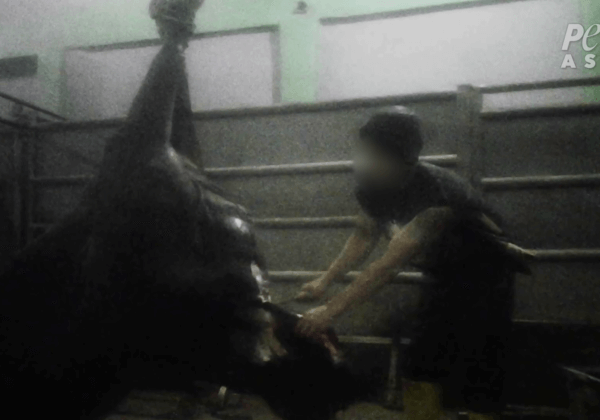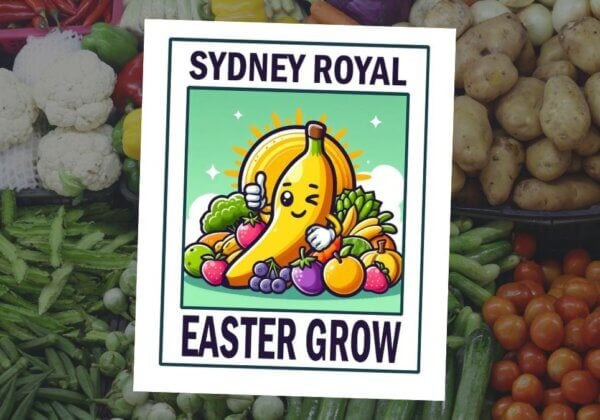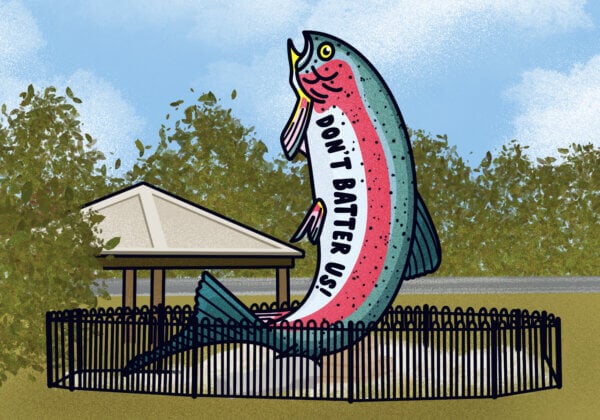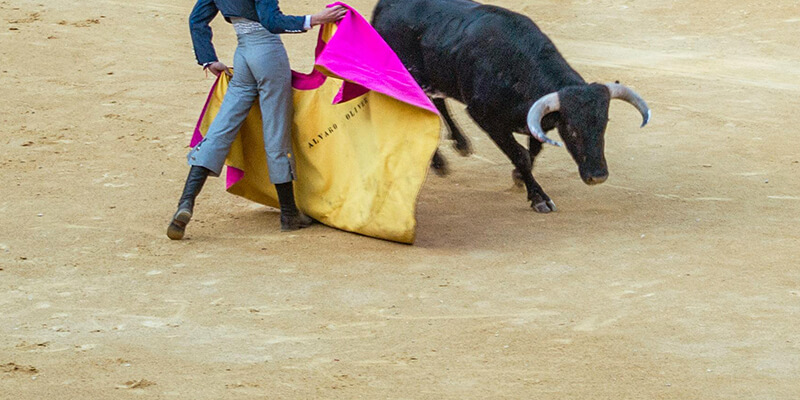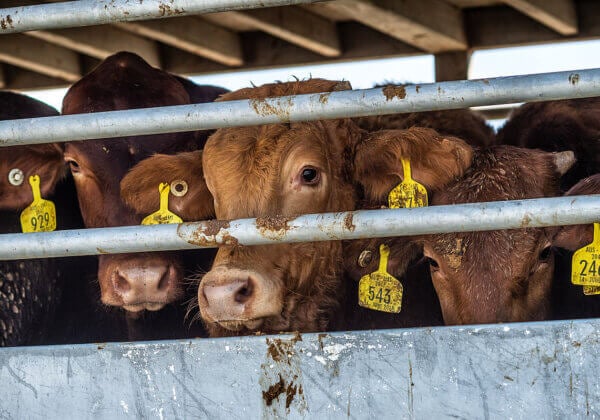Belgium Bans Ritual Slaughter. Should Australia Be Next?
At the beginning of the year, a ban on ritual slaughter came into force in Belgium. It requires that small animals – including chickens and sheep – be electrically stunned before their throats are slit, which some, but not all, believe would contravene dietary laws of Islam and Judaism dictating that animals must be healthy at the time of their death.
In his book Animals in Islam, BA Masri Al-Hafiz argues that stunning is lawful under Islamic law. In fact, today, most animals slaughtered for the Muslim market in Australia are stunned and certified as halal – the only difference is that a reversible stunning method is used. Likewise, Orthodox rabbis have accepted laws in countries such as Norway and Sweden, where stunning is required.
 Bear Witness Australia
Bear Witness Australia
In today’s high-speed, mechanised “conventional” abattoirs, millions of animals are improperly stunned every year and face the fatal incision awake, alert, and terrified. In fact, if you’re buying “conventional” meat – including that touted as “high-welfare”, “organic”, or “free-range” or carrying any other misleading label – there’s no way of knowing whether the animals who were killed for it were fully conscious as their throats were cut open.
There’s no question that animals in abattoirs are absolutely and understandably petrified when chains are shackled to their legs and they’re hoisted upside down into the air. Birds thrash wildly in panic and excruciating pain, since their legs can break under their own weight and may be pulled out of their sockets. Research shows that when cattle and sheep are killed without prior stunning, they may lose consciousness only several unimaginably agonising seconds after their throats have been cut. Animals often witness the slaughter of their companions and sense their terror.
In truth, the idea of “humane” slaughter is a myth and a red herring – because whether animals are stunned and killed or just killed, the final moments of their lives make up only one part of the long and blatantly cruel process of modern meat production. The reality of these practices is an affront not only to religious teachings about kindness but also to any decent human being’s basic sense of right and wrong.
Animals slaughtered according to halal regulations come from the same un-Islamic, unhygienic, miserable factory farms as those killed in standard abattoirs. On factory farms, animals are crammed by the thousands into filthy, windowless sheds or other confinement systems, such as crates or wireless cages. They’ll never raise their families, root in the soil, build nests, or do anything else that is natural and important to them.
PETA and our international affiliates have released eyewitness footage from around the world showing frightened animals who are abused, tormented, and mocked in their final moments. On the way to slaughter, they’re often crammed so tightly into trucks for many agonising hours that they suffocate, are crushed to death, or even freeze to the sides of vehicles during the winter. It’s no wonder that there are numerous accounts of animals who tried desperately to break free on the journey towards their death. Every single aspect of the mass breeding, farming, and killing of sensitive and intelligent beings goes against the basic principles of compassion and reverence for life shared by virtually all religions.
The only conclusion that compassionate people can reach in good conscience is that we must not only try to legislate against the most egregious cruelty but also stop supporting industries that are built on animal suffering by adopting a vegan lifestyle. For believers, no passage in the Qur’an or the Torah – or the Bible, for that matter – dictates that they must eat animals.
Compassionate people should welcome any law that aims to reduce animal suffering while knowing that none of us needs a law to do what’s right. The meat, egg, and dairy industries are hell on Earth for animals, and we already have the power to put an end to this misery simply by choosing to eat plant-based meals. With the vast array of vegan meats and dairy-free milks of all descriptions available today, making kinder dietary choices isn’t just right but also easy.

